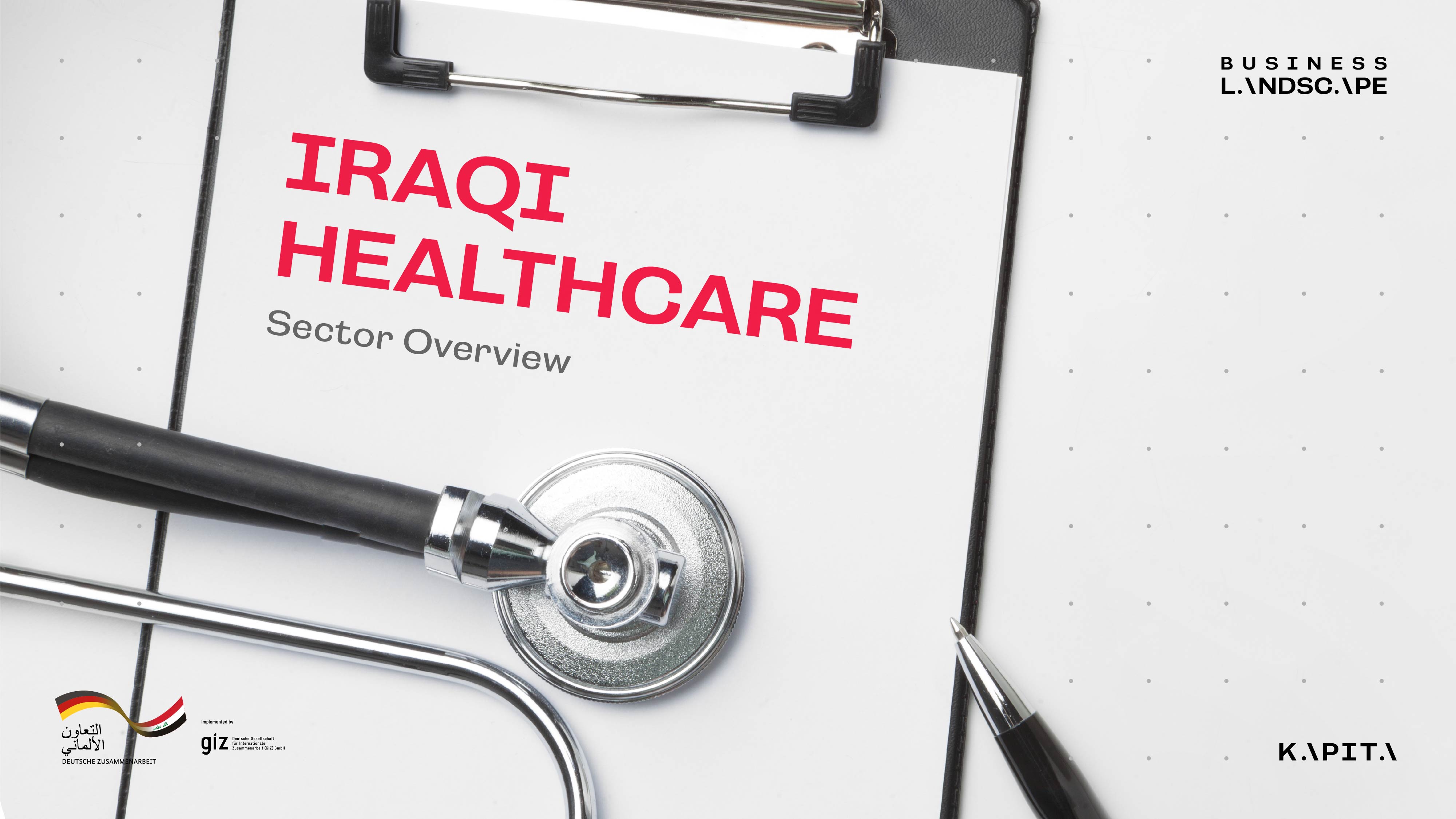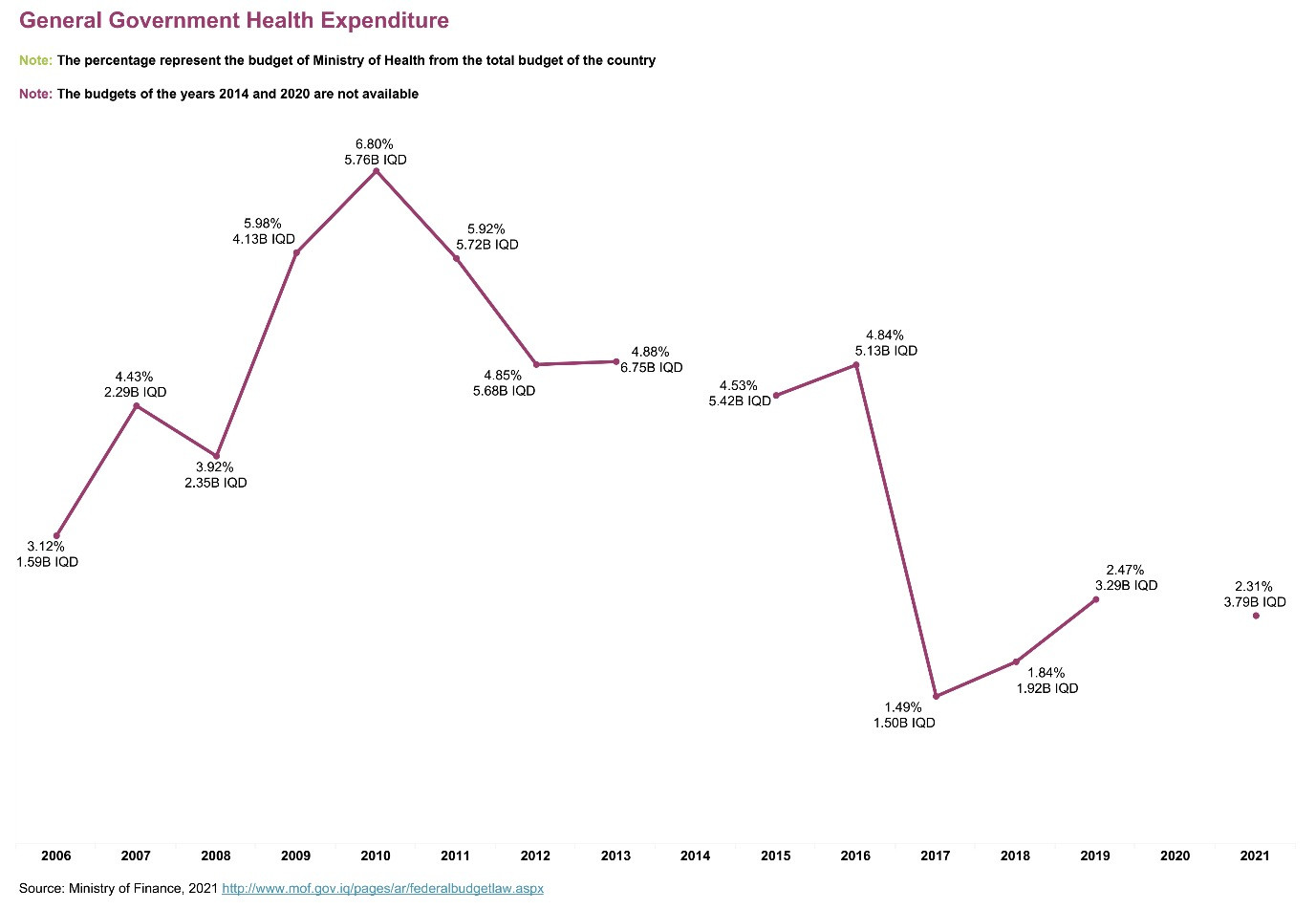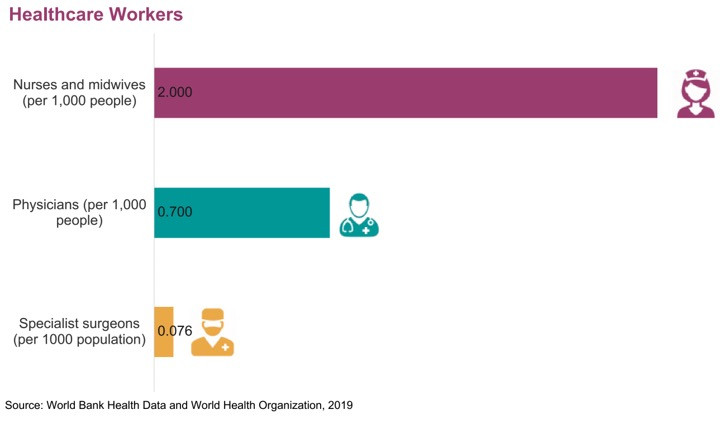| The report offers a description of the structure of the health sector in Iraq. The categories and stakeholders that comprised the sector. Mainly the public and the private sector, alongside, international agencies that work in Iraq. These agencies include the likes of the World Health Organization, the International Red Cross and Red Crescent Movement, UNICEF, the Iraq Health Access Organization, and Médecins Sans Frontières. Many of which have been in Iraq for decades, offering assistance and partnerships with the Ministry of Health (MOH). DOWNLOAD THE RESEARCH - English DOWNLOAD THE RESEARCH - Arabic This publication is part of Business LANDSCAPE series which a series of research publication aims to highlight the current situation of Iraq’s economy and private sector through publishing researches and data and make it freely available for the benefit of investors, and the local and international community This study is published in partnership with German Government via the Deutsche Gesellschaft für Internationale Zusammenarbeit (GIZ) GmbH. |  |
The Iraqi Health Sector is one of the main sectors in Iraq that were affected a lot by conflicts. Going from being one of the best in the region to one of the weakest. According to data acquired from the World Bank, Iraq’s population has been on the rise over the past decades. Growing from a population of about 7 million in 1960 to 13 million by 1980 then 23 million by the year 2000, reaching 39 million by 2020. This change in the population impacts the healthcare services, given the growth rate of the Iraqi population, this may become a burden on an already underdeveloped health sector and may create new challenges that need innovative solutions. This report sheds the light on the health sector in Iraq, the opportunities that it offers, and the setbacks it has and need to overcome.
The report offers a description of the structure of the health sector in Iraq. The categories and stakeholders that comprised the sector. Mainly the public and the private sector, alongside, international agencies that work in Iraq. These agencies include the likes of the World Health Organization, the International Red Cross and Red Crescent Movement, UNICEF, the Iraq Health Access Organization, and Médecins Sans Frontières. Many of which have been in Iraq for decades, offering assistance and partnerships with the Ministry of Health (MOH).

The report examines the funds of the health sector, breaking down the finances of the public health sector which is sponsored through the National annual budget. The 2019 budget had allocated 3,291,900,658 Iraqi dinars for MOH expenditures, divided into 351,300,301 in investment projects and 2,940,600,357 in expenditures. While the budget for 2021 had allocated 434,001,220 Iraqi dinars for MOH expenditures, divided into 336,447,707 in investment projects and 97,553,513 in expenditures.

The report dives into the problems of the workforce, examining the educational lane of universities and institutes that feeds the health workforce. The University lane provides medicine, dentistry, pharmacy, and technical schools graduates. There are 27 medical colleges in Iraq, which as of the 2020/21 academic year, admitted 7106 medicine students while dentistry colleges admitted 3044 students, and pharmacy colleges admitted 3284 students. On the other hand, the Institute lane is responsible for providing the health sector with nurses and medical auxiliaries that essential to the sector, due to the low numbers of health care providers in comparison to population density, leading to strain on the existing workforce and the facilities.
The report also explores some of the startups within this sector in Iraq and the MENA region, that utilize technology to improve the sector, such as Razi, Mustashark Alnafsi, Nabta Health, and others.
Finally, the report highlights the main issues in the Iraqi health sector, such as the disparities between the rural and urban areas, the illegal pharmaceutical drugs market, and the lack of skilled workforce. Concluding with recommendations that could contribute to the advancement and improvement of the health sector in Iraq.